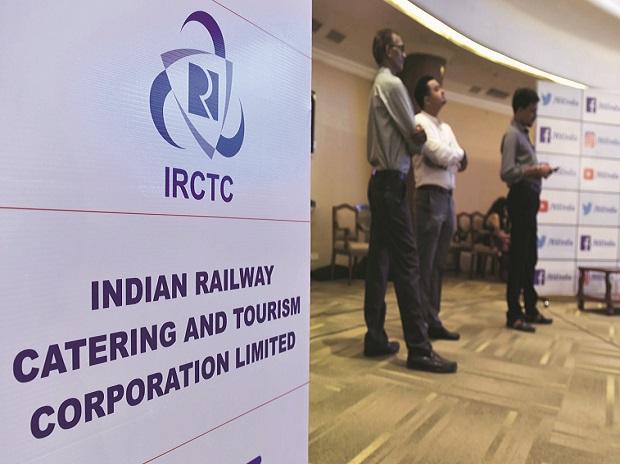Editor’s Note: Sara Stewart is a film and culture writer who lives in western Pennsylvania. The views expressed here are solely the author’s own. View more opinion articles on CNN.
CNN
—
A bold manifesto is urging us to learn how to rest as an act of political and cultural self-preservation. “Rest is Resistance: A Manifesto,” by Tricia Hersey (founder of The Nap Ministry), makes the important argument that “grind culture,” a.k.a. our addiction to 24/7 busyness, is a product of White supremacy and dead-end capitalism.

Hersey powerfully argues that taking a step off the conveyor belt to allow the mind to dream and imagine is the key to becoming more fully alive. As a theologian, she also posits that this is a human right divinely given. And yet, she writes in her introduction, “all of culture is collaborating for us not to rest… We are sleep deprived because the systems view us as machines, but bodies are not machines.”
A recent New York Times article on the book stirred up some pushback from readers, who complained about everything from its being too obvious (“I know how to nap!”) to Hersey’s solutions being unrealistic. And it is true that many people are in jobs and financial circumstances that simply don’t allow for the luxury of saying no to tasks or extra requests from the boss.
If you need to pay the bills and worry about losing your employment, gambling with the practice of checking out, or “quiet quitting,” may be overly risky.
But it’s equally true that we are living in a time of unprecedented burnout that hasn’t abated, as some theorized it would as most of us move further out of our pandemic mindsets and way of living. Staggering numbers of American workers are reporting being overwhelmed by demands at their jobs. And with a possible recession looming, it’s even less likely people will feel empowered to voice these concerns. So we continue on with the grind, at our peril.
One of the main reasons people are so drained by work, yet so unable to scale back, is the responsibility of providing for family. When you have kids at home, both money and time goes toward them – as it should. But not every woman wants to enter into this arrangement, and seeing as it is her body that will be involved in the childbearing, it’s fundamentally her decision to make. (At least, it was until recently.)
To write out these words feels too obvious. But they’re at the center of one of the most important issues on the ballot this election.
Even before the decision in Dobbs v. Jackson Women’s Health Organization, it has always been controversial for women to talk about choosing not to have children. (If it wasn’t, why do we still have to march while carrying signs that say My Body, My Choice?) The most palatable mainstream arguments for reproductive rights consistently revolve around worst-case scenarios: Medical emergencies. Rape. Incest.
But we rarely talk about the positive possibilities that open up when women make the informed choice not to be mothers – or choose not to do so again. Nor do we speculate enough about the reasons our cultural arbiters (too often, still, old White men) might have for trying to ensure that many of us remain consumed with the business of child care and everything that goes with it – and failing to see help in child rearing as the business of the state. Ask any mother and she will tell you it’s an exhausting full-time job, one that often accompanies a literal full-time job.
What if, instead, it was equally acceptable to imagine the possibility of a different kind of work, a less energy-annihilating way of life? What if we spent as much time lauding childless women who’ve chosen to devote time to community care, to anti-racism work, to working to protect the environment? Or just want to have time and space to sit quietly and contemplate being human?
These are not new ideas. My favorite cheerleaders for them can be found in the 1974 essay collection “Pronatalism: The Myth of Mom & Apple Pie.” The book contains such marvels as early feminist Leta Hollingworth, writing, in 1916, of “Social Devices for Impelling Women to Bear and Rear Children.”
Food critic Gael Greene, writing “A Vote Against Motherhood” in 1963 in New York magazine, of how she and her husband “appreciate the time and freedom to pursue potential talents … to pick up and disappear for a weekend or a month or even a year … to slam a door and be alone, or alone together.” And NBC News correspondent Betty Rollin, who writes in a witty, scathing 1970 essay about how “for women, self-development is considered selfish.”
You’ll have a hard time reading this book, because it’s out of print. I’d like to be able to say this is because it’s making points that have all been sorted out now. Ha. Almost half a century later, women are faced with fighting again for the same rights that were so recently hard-won when this book was first published.
But in these voices from the 1970s, you can hear an insistent echo of what Hersey is trying to tell us right now: It is a human right to choose to step away from constant work, whether you are a mother or not. For American women, who have historically been assigned the vast majority of that work in parenting, I suggest that opting out, in the current wildly misogynist environment in factions of this country and around the world, is nothing less than a radical act. That is, if we can hold onto our right to do it.
So I’d like to suggest a corollary to Hersey’s idea: Childlessness as resistance. I don’t say any of this to denigrate mothers or motherhood. On the contrary, in a society that wasn’t so perilously close to taking away the right to choose motherhood, it might be possible for many more women to be involved in caring for relatives’ and friends’ kids, for the community at large. Might it then be possible for all of us to get a little rest?
Note:- (Not all news on the site expresses the point of view of the site, but we transmit this news automatically and translate it through programmatic technology on the site and not from a human editor. The content is auto-generated from a syndicated feed.))




магазин аккаунтов https://birzha-akkauntov-online.ru
магазин аккаунтов аккаунты с балансом
биржа аккаунтов перепродажа аккаунтов
аккаунты с балансом гарантия при продаже аккаунтов
продать аккаунт магазин аккаунтов
магазин аккаунтов https://kupit-akkaunt-top.ru
платформа для покупки аккаунтов купить аккаунт
Website for Buying Accounts Buy accounts
Buy Account Account Purchase
маркетплейс аккаунтов akkaunt-magazin.online
маркетплейс аккаунтов https://akkaunty-optom.live/
купить аккаунт https://kupit-akkaunt.online/
facebook ad accounts for sale buy fb ad account
buy facebook accounts cheap fb accounts for sale
facebook ad account for sale buy facebook account for ads
buy account facebook ads buy facebook account